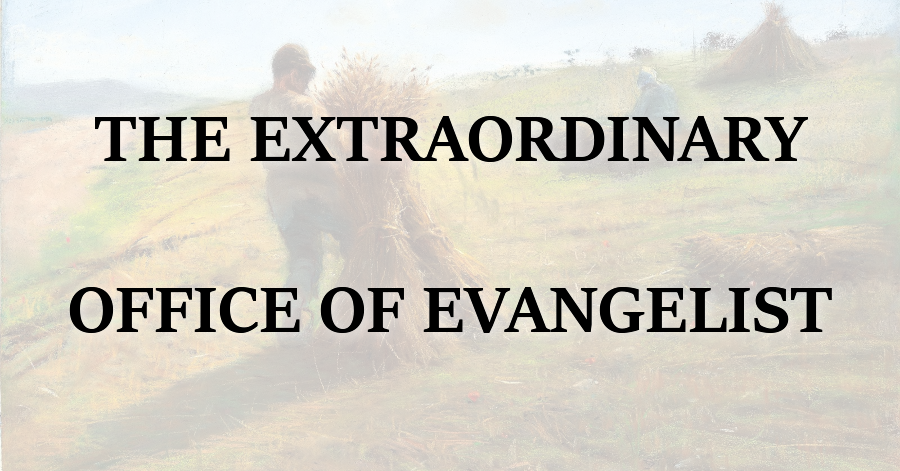But watch thou in all things, endure afflictions, do the work of an evangelist, make full proof of thy ministry. (I Timothy 4:5)
And he gave some, apostles; and some, prophets; and some, evangelists; and some, pastors and teachers. (Ephesians 4:11)
What is an Evangelist? Was Timothy an Evangelist? Do Pastors fulfill the Evangelist's post? What is the diffrence between Evangelists and other teachers? Why is it said in the FPCG that they are ceased?
(This thread is only for those who believe in Presbyterial polity.)
And he gave some, apostles; and some, prophets; and some, evangelists; and some, pastors and teachers. (Ephesians 4:11)
THE officers which Christ hath appointed for the edification of his church, and the perfecting of the saints, are, some extraordinary, as apostles, evangelists, and prophets, which are ceased.
Others ordinary and perpetual, as pastors, teachers, and other church-governors, and deacons. (Form of Presbyterian Church Government)
What is an Evangelist? Was Timothy an Evangelist? Do Pastors fulfill the Evangelist's post? What is the diffrence between Evangelists and other teachers? Why is it said in the FPCG that they are ceased?
(This thread is only for those who believe in Presbyterial polity.)


